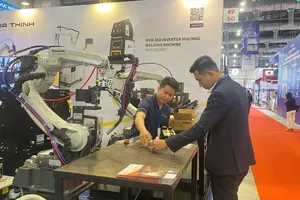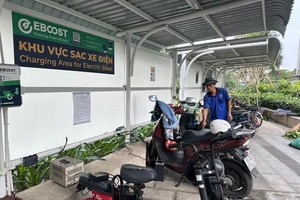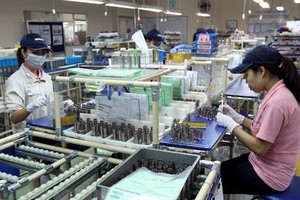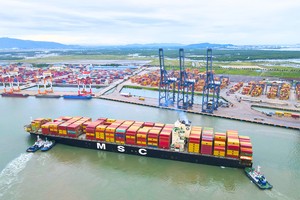 Illustrative photo
Illustrative photo
JOURNALIST: - Sir, why do a large number of highly qualified workers who are training abroad not want to return home to work, and why have some workers in the public sector recently moved to the private sector? What are your views on this phenomenon?
Dr. NGUYEN DUC KIEN: - First of all, this shift shows that Vietnam has formed a competitive labor market and is gradually beginning to operate according to the market mechanism. But this is also an open question for ministries and branches to think about to find a solution. Agencies and enterprises must self-examine whether the remuneration policy is really according to market principles to keep employees from moving out.
Mechanisms and policies may have many problems. Because everyone knows that this phenomenon exists as there is no appropriate compensation mechanism and policy. A person working in a state agency with a salary of only VND 15 mln a month, knows that when working in the private sector with the same job they are paid VND 40 mln or VND 50 mln a month. As leaders of State-Owned Enterprises (SOEs), they only get a salary of VND 70 mln, but private enterprises are willing to pay VND 200 mln a month.
Therefore, in order to answer the Prime Minister's question about what to do to attract talented people and retain good people, it is necessary to change the salary and bonus structure and pay salaries according to work performance as salaries must be commensurate with talent and skill. The Ministry of Labor, Invalids and Social Affairs, the Ministry of Finance, the Committee for Management of State Capital at Enterprises, and the National Assembly need to review Law 69/2014/QH13 on management and use of home capital and must amend this law to attract talented people and retain good people. The Ministry of Finance also needs to review the evaluation criteria for SOEs to be more appropriate.
- Sir, out of 3,000 PhDs trained abroad, up to 1,950 people or 65 percent stayed on abroad and did not return, and only 27 percent worked for the State. Each year Vietnam spends US$1.4 bln on 100,000 students for study abroad, but most of them do not return home. What do these numbers say to you?
- From this perspective, there are shortcomings in salary and a lack of attractive enough incentive in mechanisms and policies. However, what is more important is the lack of a good working environment, skills development opportunities, and many other flexible policies. As I said, this is a matter for ministries and branches to think about to come up with appropriate mechanisms and policies.
From another perspective, people who have trained abroad with budget money and with family money, and who choose to stay abroad to work also contribute to the country which benefits the country. This is only when they stay to work abroad, earn income, and send more family members abroad to work and study, while the State does not have to spend extra money but has more people trained and access to advanced education. They can acquire knowledge, improve their scientific and technical levels, improve their skills, etc. When the country needs them, they are ready to contribute. Many of them are willing to return home to contribute when the State needs them. Those who stay abroad to work are patriots in their own right.
- Sir, it is a fact that the skills of Vietnamese workers are still low. What is your opinion concerning this?
- On the national level, we have not yet created a highly qualified and skilled workforce. While the development of global value chains promotes deep international integration of the labor market, labor migration between countries requires workers not only to have high vocational skills but also to have soft skills and the ability to work in an international environment. It must be acknowledged that in terms of education and training, we have not fully met the requirements and are aware of the role and importance of developing the labor market. The management and operation capacity of the labor market has not yet found an effective solution to ensure and develop sustainably.
- We are aspiring to become a high-middle-income economy by 2035 and to reach a high-income level by 2045. So, from a labor market perspective, what do you think is the most basic and necessary solution to achieve this goal?
- In my opinion, we need to accelerate quickly with flexible and stronger policies towards the future, take advantage of the golden population opportunity with strong and breakthrough changes, enhance quality education and training, obtain a high-quality labor force, master technology, and have a competitive and sustainable labor market.
We need to develop a national strategy for human resource development and a labor market development strategy when the golden population is still present. It is necessary to renew the salary mechanism and have appropriate remuneration policies, while also promoting the training needs of labor.
There is a lot of work to be done, but to do it, it is necessary to build a modern and transparent labor market management system and also have a system for information, statistics, and data on labor. Whether the connection of information between sectors, regions, and across the country is good or not will greatly affect the planning of labor market development policies as well as human resource development policies and job creation in the future.
- Thank you very much.
























